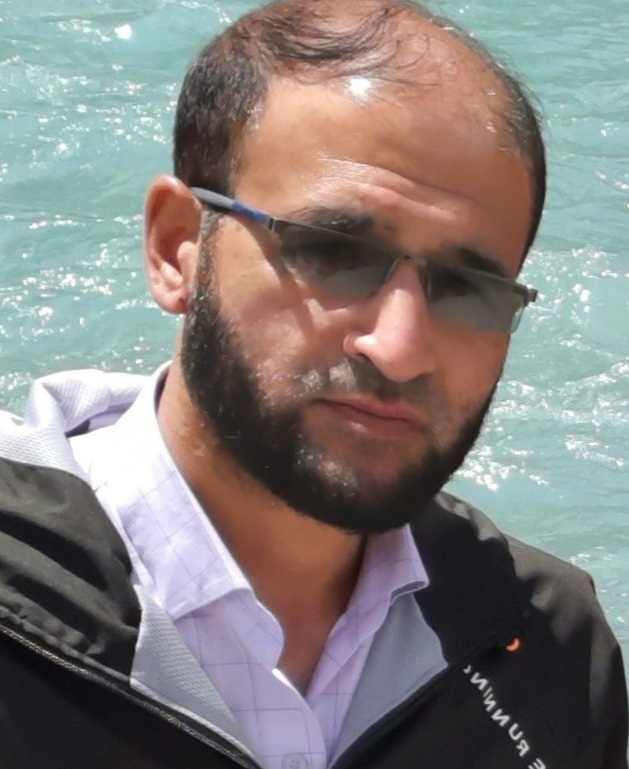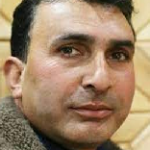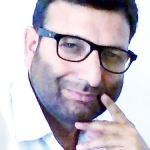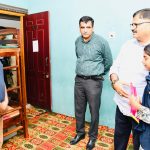The teacher should learn to be a passionate professional, because s/he becomes a participant in the knowledge, intelligence and wisdom which, in totality, belong to God, the All-Knower
TEACHERS’ DAY
God is the Necessary Being. That is, “God exists,” is a logical, analytical and a priori truth. Or, it is logically impossible that “God should not exist!” Now, God is also the Intelligent Being. It means God is all-wise, all-knowing and all-seeing! However, intelligence also means applying knowledge for useful purposes. Thus all the “grand design” in the “organized universe” is the reflection (read creation) of the Necessary and Intelligent Being of God. It would in no way be any exaggeration if we say that God’s knowledge embraces all existence.
Now, God has bestowed humans with knowledge, although miniscule or whatever was “willed by God” (Qur’an, 2: 255), to lead the affairs of life in a smooth way. It was very much necessary because it was a safeguard for the humans to maintain their dignity and distinction amid the plethora of creation. Hadn’t the humans been made knowledgeable and intelligent by God, there wouldn’t have been any difference between beasts and humans. This has been precisely declared by the Qur’an as: “We have honoured the sons of Adam.” (17:70)
It is also a fact that human beings, in any capacity or field, are not and could not be equal or at par with each other. Naturally, some excel in one field and some shine and make their name in some other field. This is exactly same for the realm of knowledge and intelligence. Moreover, some are born genius while as some compete with others by dint of their hardworking temperament and laborious nature. Still nobody can monopolize knowledge and intelligence. To this effect, the Qur’an says: “But over all endued with knowledge is One, the All-Knowing.” (12:76)
Now, what the teacher does is that s/he becomes the agent of knowledge dissemination and intelligence proliferation. A teacher, by burning the midnight oil, becomes a medium between the source of knowledge and the seeker of knowledge. S/he thus remains a link between knowledge and its seeker. Thus, it is not so simple to become a teacher. Since it is a continuous process, so s/he remains in the process of “becoming” instead of just “being” a teacher! R. N. Tagore, in this regard, is reported to have said: “A teacher can never truly teach unless he is still learning himself!”
A teacher is thus possessed by this learning-teaching process because one cannot be separated or divorced from the other. S/he, as such, becomes altogether a symbol of “knowledge realization!” It is a “state” (haal, to use the Sufi term) where a teacher not only “thinks” and “feels” teaching, but s/he “smells” and “tastes” teaching. S/he always devises means and methods to learn, unlearn and relearn to make the students “learn!” S/he thus reaches a “station” (maqaam, in the Sufi terminology) where s/he welcomes every query of her/his pupils. S/he never rebukes her/his students for any simple or complex question.
At this juncture, the teacher is not bothered about her/his not knowing the answer of any query posed by the students. This is because s/he has a firm conviction that accepting “I don’t know is half of knowledge” (Arabic, la adri nisf al-‘ilm), is a sound basis for gaining true knowledge. That is, s/he doesn’t shy away from remaining continuously in the process of knowing what is knowable and what is not known yet. Thus, s/he remains a perpetual seeker asking those who know more or who are in the process of knowing more and more. However, what is important for every seeker and for a teacher in special is that the question posed to her/him and the question which s/he asks others should not be meaningless, because from the level of “not knowing” a seeker should rise to the level of knowing in a decent way. And, in this direction question being posed to the teacher or which the teacher poses to the one who is superior vis-à-vis knowledge should be “meaningful!” Here, it should be borne in mind that “a good question is half knowledge” (Arabic, husn al-su’al nisf al-‘ilm).
Thus, by continuously storing in her/his person the knowledge and expertise from the storehouse(s) of knowledge and wisdom, a teacher can really become a “resource person” worth to be called “resourceful!” Thus, s/he would be sitting at the topmost vertex of the three vertices of the triangle representing the relationship between parents, teachers and students. The teacher would thus fit herself/himself in the tri-polar system of education where the educator, educand and social environment perpetually interact with each other for the betterment of the society in a holistic manner. Education thus becomes a “trilogue” on the societal level where all the three components of the process of education (educators, educands and parents) are equally contributing to the society which they are a parts of.
Here, one thing is worth mentioning that when the teacher takes the process of education in an holistic way, the student is not considered as a liability on the shoulders either of the parents or the teachers or both. Since the whole process is the “becoming of the society,” the student itself is treated as the “society in becoming!” As such, anything and everything “invested” on the student is understood to be an investment directly on the society. That is why societies, throughout the history, have “lavishly” spent on the great cause of education.
However, the expenditure and investment made on the education enterprise should be proportionate. That is, none of the three vertices of the education triangle (student, parent, teacher) should be neglected. Parents (society) should be given “incentives/opportunities” so as to motivate them to spare their wards for education. Every care should be taken of the students/children (their overall health and well-being) to make them capable for the process of education. Also, proper care should be taken of the educators so that they could spare themselves wholly for the process.
Nevertheless, the onus of the success of the process of education lies more on the educators/teachers. Therefore, they have to be more serious for its success. That is, they should contribute a bit more than what they receive in the form of salaries or incentives. S/he should be on top of the ladder of selfless sacrifice and devoted service for the great cause of education. The teacher should repay more than what s/he is being paid as remuneration. True, the wisdom and intelligence which s/he disseminates is indeed invaluable. It is this wisdom and intelligence which gives the generations next the feet to stand on, the inspiration to move on and the enthusiasm to march forward. But for these elements the society would indeed stagnate.
However, the society should never weigh a teacher by means of the money which s/he receives on account of teaching. Here, the fact should be borne in mind that the teacher actually participates in and makes the generations next participate in the process of seeking wisdom and intelligence and the teacher, on her/his part should keep in mind that “it is far easier for me [him] to teach twenty what were right to be done, than be one of the twenty to follow mine [his] own teaching!” (Shakespeare). In short, the teacher should learn to be a passionate professional, because s/he becomes a participant in the knowledge, intelligence and wisdom which, in totality, belong to God, the All-Knower!
(The author is Sr. Assistant Professor, Islamic Studies at GDC Sogam, Lolab. Feedback: [email protected])








